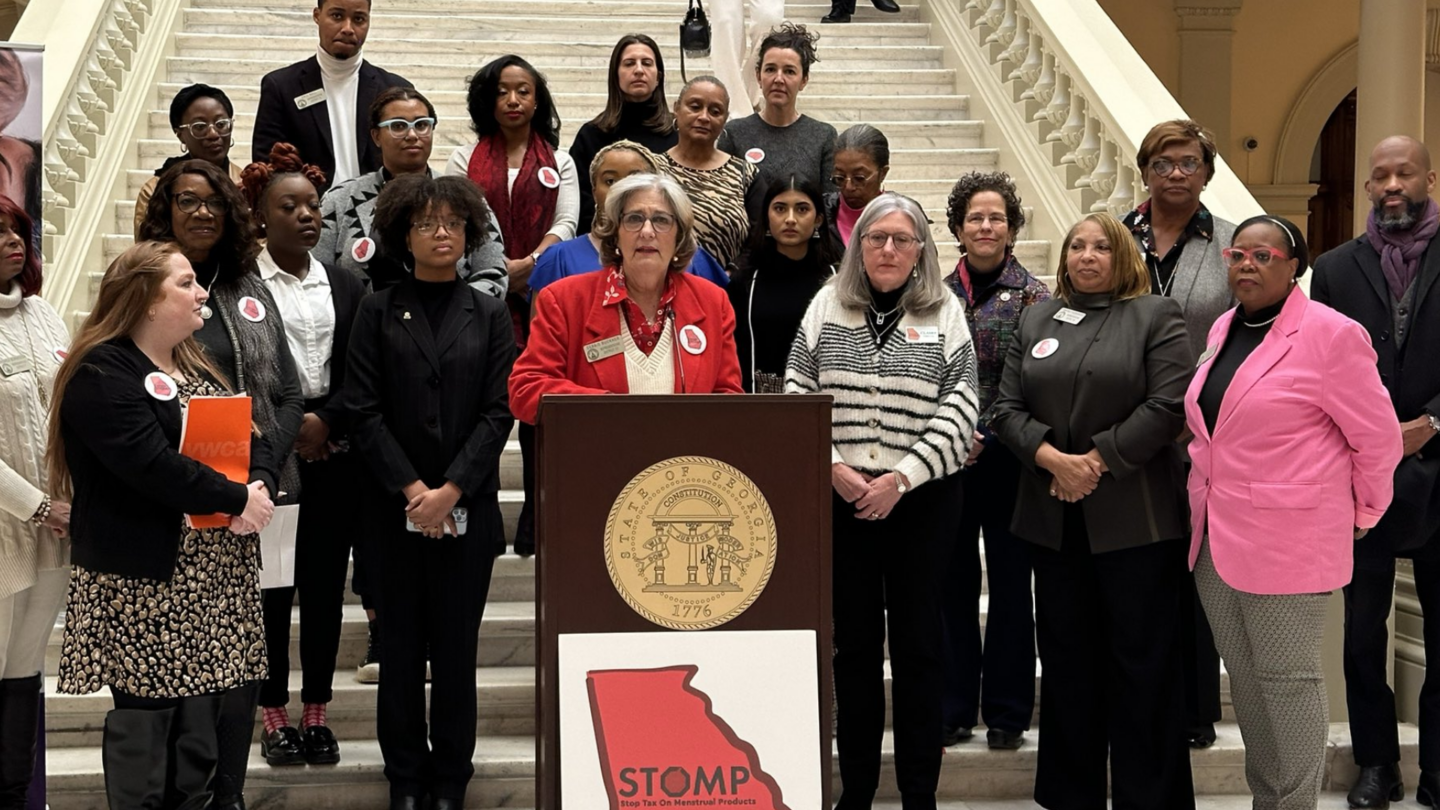Advocates will again push state lawmakers to remove the state’s four percent sales tax on menstrual products.
It is the seventh straight year the legislation is being pushed by Georgia STOMP, a coalition of 37 organizations, including YWCA of Greater Atlanta and the League of Women Voters.
“Unlike so many issues in our world today. This is not a partisan issue” says Georgia STOMP Chair Claire Cox. “The 29 states with no sales tax are red states and blue states. Florida gave this exemption long ago, and two of the most recent states to join the list are Virginia and Texas.”
According to Georgia STOMP, there are 24 states with no sales tax on menstrual products. There are another five states with no sales tax at all. STOMP stands for “Stop Tax On Menstrual Products.”
Democratic State Rep. Debbie Buckner, who has pushed the legislation for a number of years, talks about one of the reasons she believes the legislation failed in the past.
“There is a real concern for some that this would open up a can of worms of other people wanting to come and ask for other things to have the tax removed. Our stance and my stance is that there’s nothing else quite like this.”
Nicknamed the tampon tax, it translates to about six million dollars a year according to Georgia STOMP.
The state’s annual budget is about $35 billion.
The state of Georgia removed the sales tax on food and other items in 1996. During a press conference at the State Capitol Thursday, Buckner shared a bit of history from inside the negotiations.
“We have talked in the past to the people who were in the budget room when they took the sales tax off of groceries. There were no women in the room, and no offense to men, I just don’t think they thought about it. In fact, we talked to each of the men that were in the room, I did. And they said it just did not cross our mind.”
Nearly a dozen other state lawmakers joined Buckner and advocates on the steps of the South Wing of the State Capitol for Thursday’s press conference.
The state of Georgia does not tax prescription drugs and certain non-prescription medical devices like hearing aids and insulin syringes.
One of the bills proposing an end to the sales tax is House Bill 123. It is currently in the Georgia House Ways & Means Committee, which is responsible for changes to Georgia’s tax code.








